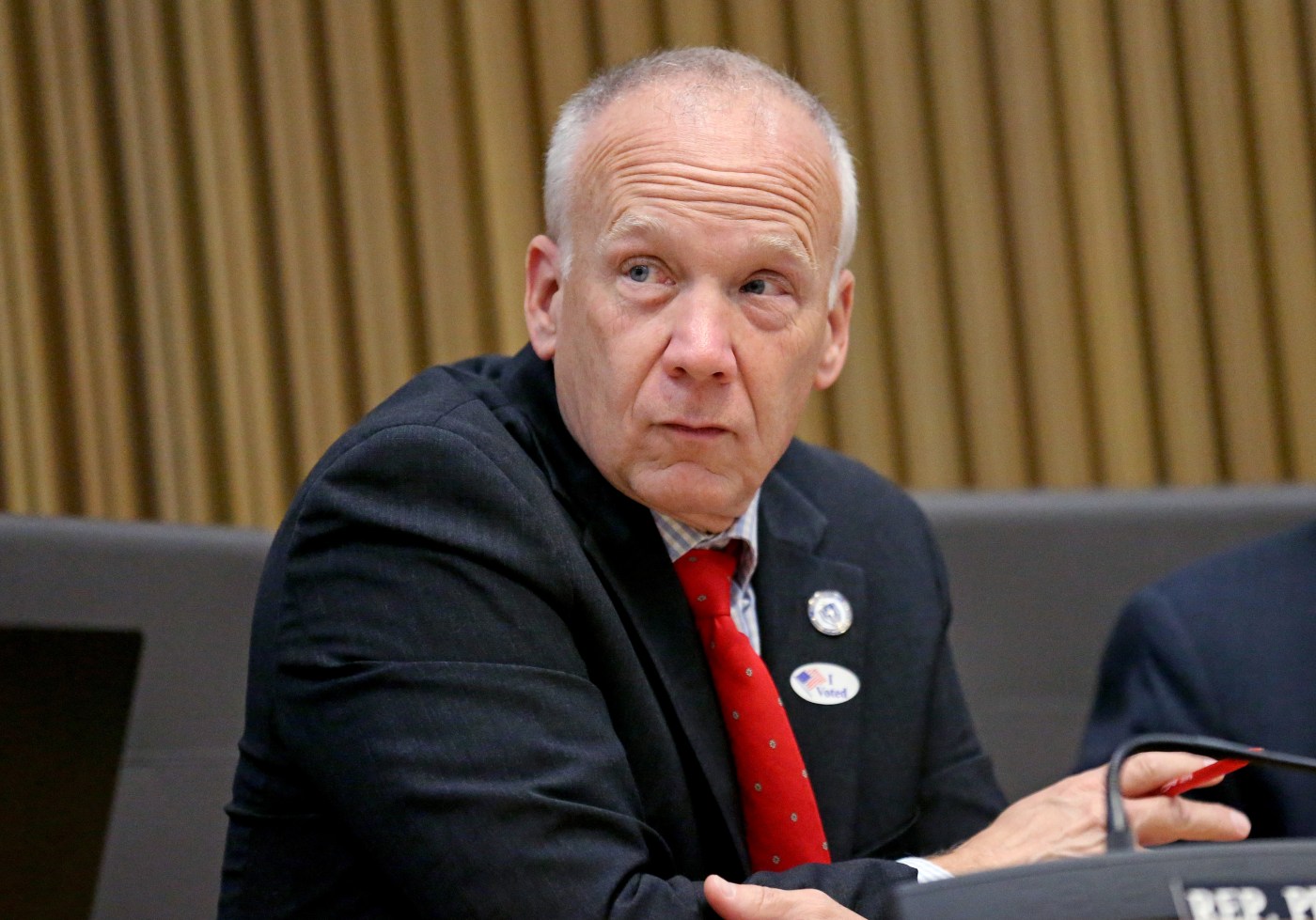
Spencer Republican plans to file bill that would repeal gun law Healey signed last summer
A Republican state senator backed by a coalition of gun rights advocates plans to file a suite of bills this month that attempt to repeal a major firearms law Gov. Maura Healey approved last year.
Sen. Peter Durant of Spencer said he is preparing six different pieces of legislation that target a gun law top Beacon Hill Democrats have hailed as a key measure to save lives, create safer communities, and maintain responsible ownership of firearms but critics argue impede fundamental Second Amendment rights.
Durant said one bill will call for a full repeal of the law while the rest will take aim at sections of the statute covering gun registrations, a ban on automatic rifles and shotguns, live fire training requirements, a nonresident ban on semiautomatic magazines, and a “pre-ban” on magazines.
The Spencer Republican said the gun law approved last summer “unjustly infringed upon” Second Amendment rights and undermined “the freedoms of law-abiding citizens.”
“First and foremost, we’re calling for a full repeal of this restrictive law. This is the ideal solution, a return to the freedoms that have been unjustly taken away. While we recognize that this will be an uphill battle, it is a fight worth pursuing,” Durant said outside the State House Thursday afternoon.
A legislative push to erase the gun law from the state’s books comes after a group of gun store owners and firearm owners managed to collect more than 90,000 signatures to place a question on the 2026 ballot asking voters to repeal the law.
Multiple lawsuits have been filed in various courts in Massachusetts challenging the law, including at the federal level by a local affiliate of the National Rifle Association and owner of a gun shop in Bellingham.
Healey defended the statute last year, arguing that “strong gun laws save lives.”
“This law is the state’s most significant gun safety legislation in a decade. It will make Massachusetts safer as soon as it goes into effect, including by keeping assault-style weapons that are a danger to our communities off our streets, and by keeping guns out of government buildings and courts,” she said in a letter to Secretary of State William Galvin.
A spokesperson for Healey did not immediately respond to a Herald inquiry Thursday.
Durant’s push to repeal the gun law drew support from The Civil Rights Coalition, the group of gun owners who are backing the 2026 ballot question that would do away with the statute.
Toby Leary, head of the coalition and owner of Cape Gun Works, said firearms owners were attempting to “claw back our rights from the very people that swore an oath to protect them.”
“Thomas Jefferson made clear, whenever the government goes beyond the limits of the Constitution, a nullification is the act and the rightful remedy. If this is the rightful remedy for unconstitutional federal laws, then it is also the rightful remedy for unconstitutional state laws as well,” Leary said.
The law bans people under 21 from owning semiautomatic rifles or shotguns, outlaws untraceable firearms known as “ghost guns,” expands who can petition the court for an extreme risk protection order, and bars carrying weapons in certain places, among other things.
Lawmakers also wrote into the statute a range of new training and licensing requirements like the need for live fire training, though the Legislature took steps last year to delay some of their implementation dates after acknowledging drafting mistakes.
While supporters of the bill have argued a repeal of the law will make it harder for law enforcement to keep people safe from gun violence, critics have said the statute makes it harder for gun shop owners to stay in business and potentially incriminates everyday citizens.
Leary said the law caused “irreparable harm to the people by the whims of elected officials catering to the anti-gun, ant-civil rights lobby.”
“Who among us would stand for their rights to be treated the same as the Second Amendment? Are we okay with a speech control advisory board being formed that would regulate speech and make recommendations about what is permitted or is prohibited speech?” Leary said. “It is preposterous to think of that but that’s exactly what Chapter 135 does.”
Previous Herald materials were used in this report.


